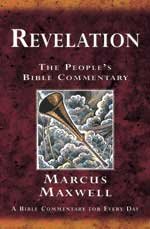 Another parish mag item, just to keep the blog in existence.
Another parish mag item, just to keep the blog in existence.A friend whose dog has recently died asked me to consider doing a sermon on the general theme of "do pets go to heaven?" I wasn't sure how long it would take for a suitable Bible passage to crop up in the Sunday readings (a long time, I suspect) and I wasn't sure either, that I could pad out "I don't know" into a full sermon. But that "I don't know" does turn out to raise a few issues, so I thought I'd have a quick shot at a couple of them here.
The traditional answer to the question is simply no. Animals, having no souls, can't really go on to an after-life. But the issue isn't quite that simple. For one thing, it's not really all that obvious what a soul is. The idea that we have a sort of detachable part of us which leaves the body when we die, and travels off to realms unknown is rather hard to find in the Bible. It got into Christian thinking from Greek philosophy and it causes more problems than it solves.
Can we even imagine a soul? Aren't we in fact so intrinsically embodied that it is impossible to conceive of a bodiless existence? That isn't to say that talking of souls is meaningless, but it does say that souls aren't so much something we have as something we are. The definition I like best is "rational self-consciousness".
Some animals, I would argue, are certainly self-conscious to a degree. My cat definitely is (though she does not accept that anyone else is). And if being a soul is a function of rational self-awareness, then it seems that other creatures than humans possess a degree of such consciousness (and to some extent rationality). So on the soul front, it might well be that there is a sliding scale, on which some creatures score pretty highly.
However, thinking about souls doesn't get us all that far if we are not looking for them to break loose on death, and sail away. In fact, the Christian view of life after death is actually about the hope of resurrection, and God's provision of a new creation. In that creation (though what it may be like is beyond our imagining), it may well be that there will be some sort of animal life - after all, in this one, God seems to have created rather a lot of non-human life, so why not in the new creation?
Whether that life will in some way include our beloved Fido, we can't say. It is, after all just speculation - butit's possible, I suppose. This, though, brings us to the real point, which is not just about about pets. We are told very little about the life to come.
Christians believe in resurrection, in a new creation, and a healing of all that is broken and hurt in this world. But we are not told about it in detail, and attempts to speculate hardly do it justice. (Look for instance, at the well-meaning but hopelessly twee illustrations in those tracts that Jehovah's Witnesses leave behind them.) What we are told, is to trust God.
This comes out well in funeral services. We don't focus on the destination of the person who has died, but on God. We do not commend to deceased to heaven or Valhalla or wherever, but to God. Christianity is not a belief in a particular system of heaven and hell or whatever, but a trust in the God who meets us in Christ, and who will ultimately say, "Behold I make all things new."

